Scientific research work in the field of agricultural research at the Institute has intensified with the growth of interest in the cultivation of medicinal, aromatic and spice plants. The researchers base their work on modern achievements in certain segments of plant cultivation, while at the same time using the rich experience of older experts from the earlier period of the Institute's work. With respect for the specific requirements of individual plant species, research is carried out in different agro-ecological conditions of Serbia, primarily through scientific research projects of the relevant Ministries in charge of science and agriculture, and more recently within the framework of international projects.
At the end of 2021, the Department for Agricultural Research and Development has a total of 10 agronomist researchers (six PhDs and four PhD students) and one agricultural technician.
The main research interests of the researchers of this department focus on the following areas:
- Improvement of conventional LAB cultivation technologies, which includes:
- production of high-quality and uniform planting material of perennial LAB in controlled conditions (in favorable micro-climatic conditions for germination), which overcomes the limitations of the production of these plants from seeds (dormancy, low germination, smallness of seeds) and eliminates the consequences of polymorphism;
- nutrition of LAB seedlings and seedlings, including the production of specific substrates according to plant requirements;
- protection of cultivated LAB by finding optimal methods of control of weeds, harmful insects in LAB and causative agents of LAB diseases, aligned with current legal regulations related to the healthiness of medicinal plant raw materials.
Picture. Developing new and improving existing technologies for growing medicinal plants.
- Improvement of organic farming technologies by implementing new methods, such as:
- application of preparations from the List of plant nutrition and soil conditioners in the production of LAB (microbiological fertilizers: plant growth-stimulating microorganisms and mycorrhizal fungi);
- the inclusion of LAB species in the formation of "protective flower belts", as an important measure in the suppression of diseases, pests and weeds of important agricultural crops;
- production of preparations based on LAB, intended for nutrition and protection of various agricultural crops, including LAB cultures;
- making "compost teas" containing LAB in order to encourage the mineralization of waste generated in the production and processing of LAB and to obtain quality compost.
Picture. Field experiments with organic mulch mats and synthetic foils in order to suppress weeds and their further spread on the production areas of the Institute
- Composting of waste from the production and processing of LAB, as a method of safe disposal of organic waste from the processing of LAB in the Institute and at the same time the production of compost for use in plant production.
- Introduction of new LAB species, chemotypes and varieties into production and their planting, which implies:
- collection of appropriate reproductive material (seeds, clones) of pharmacologically interesting and LAB species for which the annual needs of the Institute are high;
- examination of the optimal agro-ecological conditions for their cultivation (by setting up micro-mirrors in different localities), all with the aim of establishing plantation production of high-value plant raw material of standard quality.
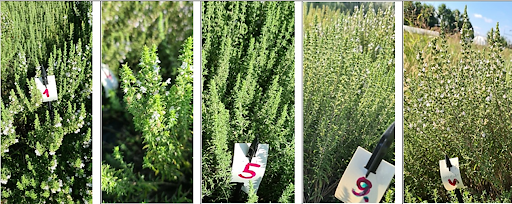
Picture. Research on different chemotypes of Satureja montana L.
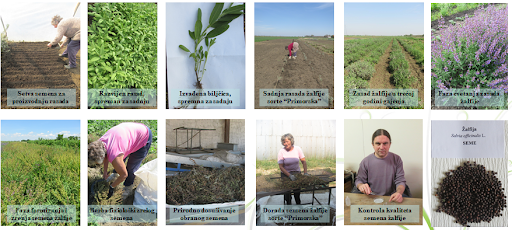
Picture. Method of production of "Primorska" sage seeds
- Introduction and domestication of protected and endangered LAB species, with respect to:
- good practice standards for sustainable collection and cultivation of LAB (Guidelines for Good Agricultural and Wild Collection Practices)
- method of organic production, defined by the Law and Regulations on organic production
- Improvement of seed production and development of selection and breeding of LAB
- improvement of sowing techniques and technologies while respecting the principles of economy;
- improvement of packaging procedures and storage of processed seeds in order to ensure the required quantity and quality of declared LAB seeds.
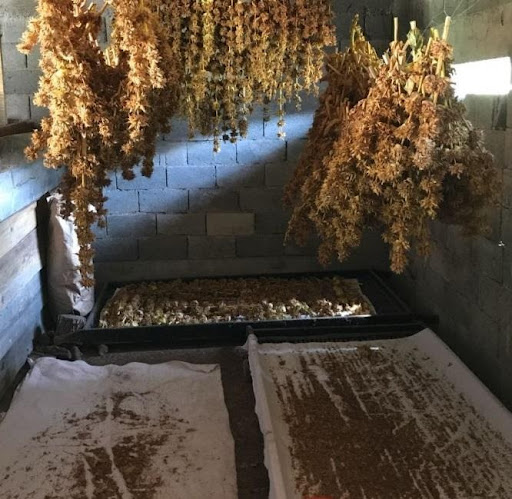
Picture. Ripening of yellow sardine seeds from production
- Development and expansion of the application of biological measures in plant production as alternative measures of protection against harmful organisms
- examination of the possibility of applying bacteria, fungi, insects, plant ingredients, hormones from the auxin group, secondary metabolites, in order to find effective natural formulations that can reduce the use of synthetic preparations in the production of various agricultural crops.
- Improvement of LAB primary processing procedures
- procedures for drying medicinal plant raw materials;
- procedures for distilling essential oils.
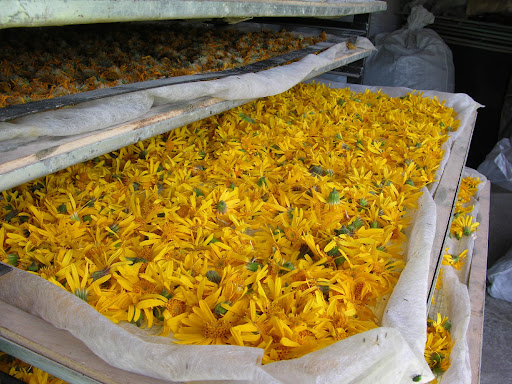
Picture. The drying of the flower of the Arnica montana L.
- Regionalization of LAB cultivation in Serbia
Long-term research aimed at defining the wider areas of Serbia in terms of suitability for the cultivation of certain LAB species, which includes:
- selection of entities interested in growing LAB in different areas of Serbia, joint definition and development of cooperation, which would include education of people in the field and installation of several micro-mirrors with different LAB species in different locations in Serbia.
- Examination of the mutual compatibility of the soil and selected medicinal species by conducting preliminary ex situ vegetation trials in semi-controlled field conditions on the Institute's trial areas.
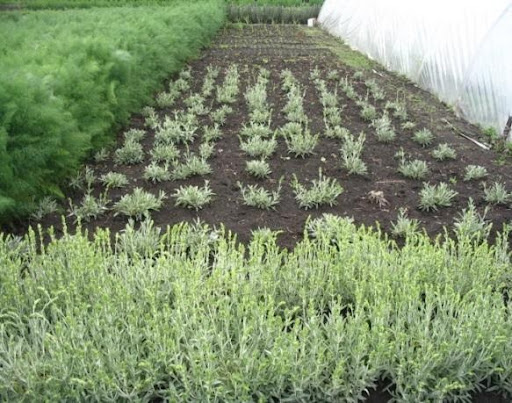
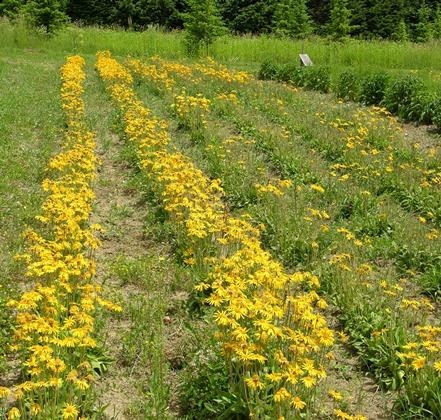
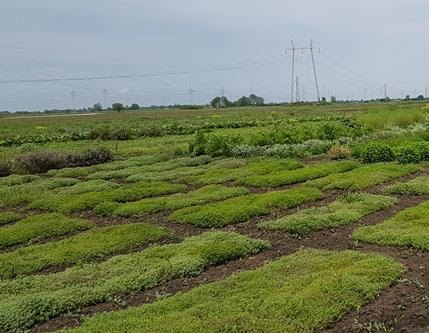
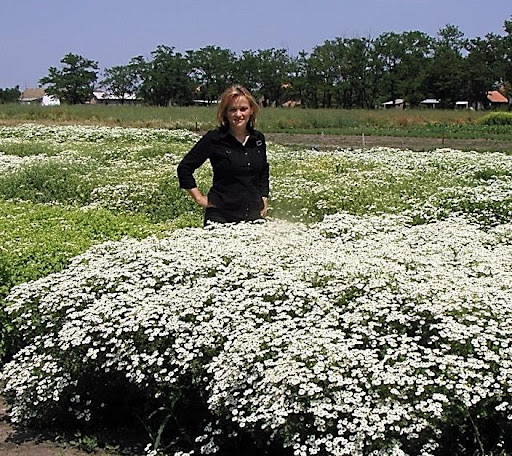
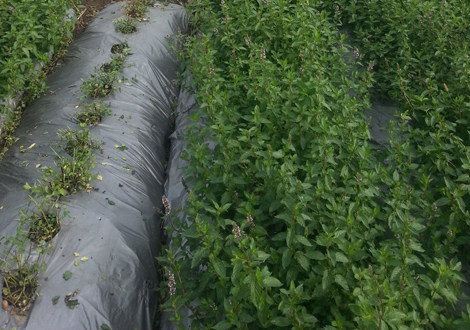
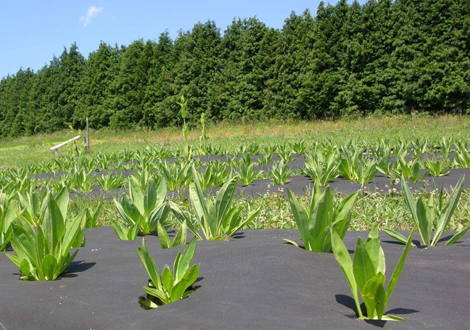


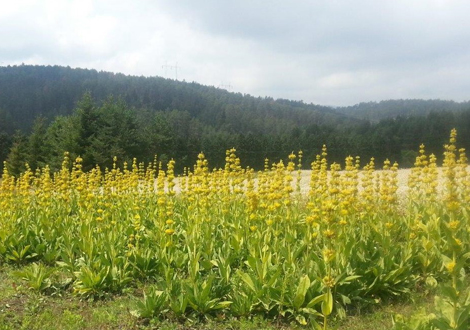
.jpg)

